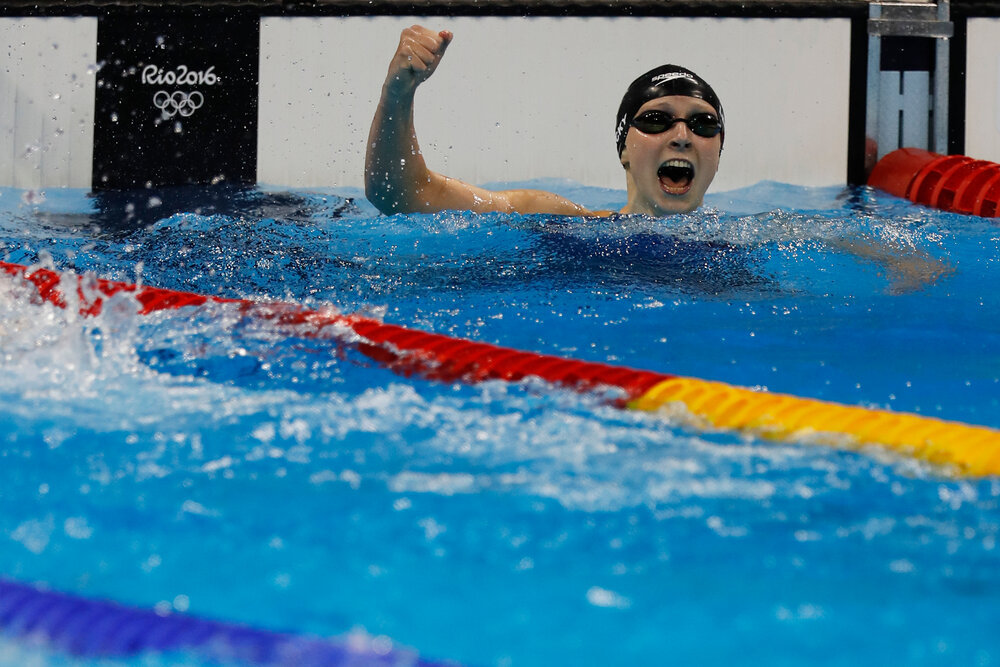FINA Faces Backlash on Their New Gender Inclusion Policy
On Sunday, FINA adopted a new gender inclusion policy that states trans women who transitioned before 12 years old can compete in elite women’s aquatic events.
After speeches from athletes, scientists, medical professionals, and HR groups were presented to FINA’s General Congress, 71.5% voted in favor of the policy. This new gender inclusion policy came into effect on Monday.
“We have to protect the rights of our athletes to compete, but we also have to protect competitive fairness at our events, especially the women’s category at FINA competitions,” comments Husain Al-Musallam, the president of FINA.
FINA is the international committee that controls the development of water sports such as swimming, water polo, and high diving at the Olympics.
James Pierce, a spokesperson for FINA, told The Associated Press that this policy “is not saying that people are encouraged to transition by the age of 12. If you transition after the start of puberty, you have an advantage, which is unfair.”
This whole thing about trans youth not being able to compete in swimming unless they transition by 12 is foolish.
— Transgender Rights (@TransRightsMOVE) June 20, 2022
The decision when and how to transition must be between a child and their parents and medical professionals. @ACLU
This is bullshit
— Pie4Breakfast (@sugarjacq) June 19, 2022
By this policy no trans woman could swim.
Kids do not “complete transition by age 12”.
A girl w/puberty blockers at 10 & estrogen at 16, & noimpact of masculinizing hormones would still be excluded.
It’s anti trans, period.https://t.co/giJEWuQ4tB
With this new policy, FINA has also proposed an “open competition category,” but has not worked out the logistics of it yet.
“No one quite knows how this is going to work,” Pierce told The Associated Press. “We need to include a lot of different people, including transgender athletes to work how it would work.”
I hope FINA actually follows through with what was mentioned in the article, i.e. having a panel including trans athletes to help design a categorization that doesn’t marginalize one group over another.
— Ciudadana Mundial (@senorajen) June 20, 2022
FINA’s new policy has caused a lot of outrage and backlash, especially on social media.
We are rightfully disturbed by the introduction of new rules to specifically exclude trans women/girls/femmes from participating in sports. These new rules are scientifically misguided and incredibly cruel. Trans women belong in women’s sports.
— Scout O’Keefe (@OKScout) June 20, 2022
Stunned by #FINA’s ban on Trans women, keen to see the ‘scientific research’ they’re quoting… forcing trans women to compete in an open category is discrimination, end of 😭
— Charlie Martin (@GoCharlieM) June 20, 2022
If a trans women wins just once it’s called out, even if they’ve lost dozens of times previously 🤷🏼♀️
Many medical professionals and LGBTQ+ nonprofits have also spoken out against the ban. For instance, Dr. Alireza Hamidian Jahromi, the co-director of the Gender Affirmation Surgery Center at Temple University spoke with The Associated Press and stated that 12 is a random age, and the beginning of puberty varies for each person.
“Where did that 12 come from?” he asks. “Is that a specific age that everybody is supposed to have passed through puberty?”
Dr. Hamidian Jahromi also mentioned that for a patient that has finished transitioning, including undergoing surgery, this is nearly impossible because transition treatment can only be started at age 14.
What a horrific policy. I continue to be embarrassed to have been a former D1 swimmer and coach. Our community seeks any reason to exclude people and discourage them from learning how to swim, leading to higher drowning rates
— Dr. Johanna Mellis (@JohannaMellis) June 19, 2022
Athlete Ally, an organization whose goal is to end discrimination against the LGBTQIA+ community in athletics, wrote a statement on FINA’s newest policy.
“FINA’s new eligibility criteria for transgender athletes and athletes with intersex variations is deeply discriminatory, harmful, scientific, and not in line with the 2021 International Olympic Committee framework on Fairness, Inclusion, and Non-Discrimination on the Basis of Gender, Identity, and Sex Variations,” states Anne Lieberman, the Director of Policy and Programs.
Because of the ban, transgender swimmers like Lia Thomas cannot compete in women’s elite swim competitions such as the Olympics. Thomas, a graduate of the University of Pennsylvania, became the first transgender athlete to win an NCAA D1 national championship by winning the 500 Freestyle Final at the 2022 NCAA Swimming Championship in March.
Thomas has not spoken publicly about her opinions on FINA’s new gender policy; but on May 31, Thomas went on Good Morning America to speak about her career and how she felt about being the center of attention when it came to trans rights and sports.
“Trans women are not a threat to women’s sports,” she confidently told GMA.
As of late May, Thomas also planned to keep on swimming, hopefully in the Olympics one day.
“It’s been a goal of mine to swim at Olympic trials for a very long time,” Thomas informed GMA. “I would love to see that through.”
Banning swimmers who are trans is discrimination. None of the research on this has been done on elite athletes. FINA have made this decision bc of the misogynistic hate campaign directed at Lia Thomas by the anti-trans lobby. Her career has been ruined by this decision.
— Jackie Turner 🏳️⚧️ (@JackieMaeTurner) June 19, 2022
Information from The Associated Press and a press release by FINA contributed to this article. Watch Lia Thomas’ interview on Good Morning America below.
Writer | Tweet me @lizlindain







